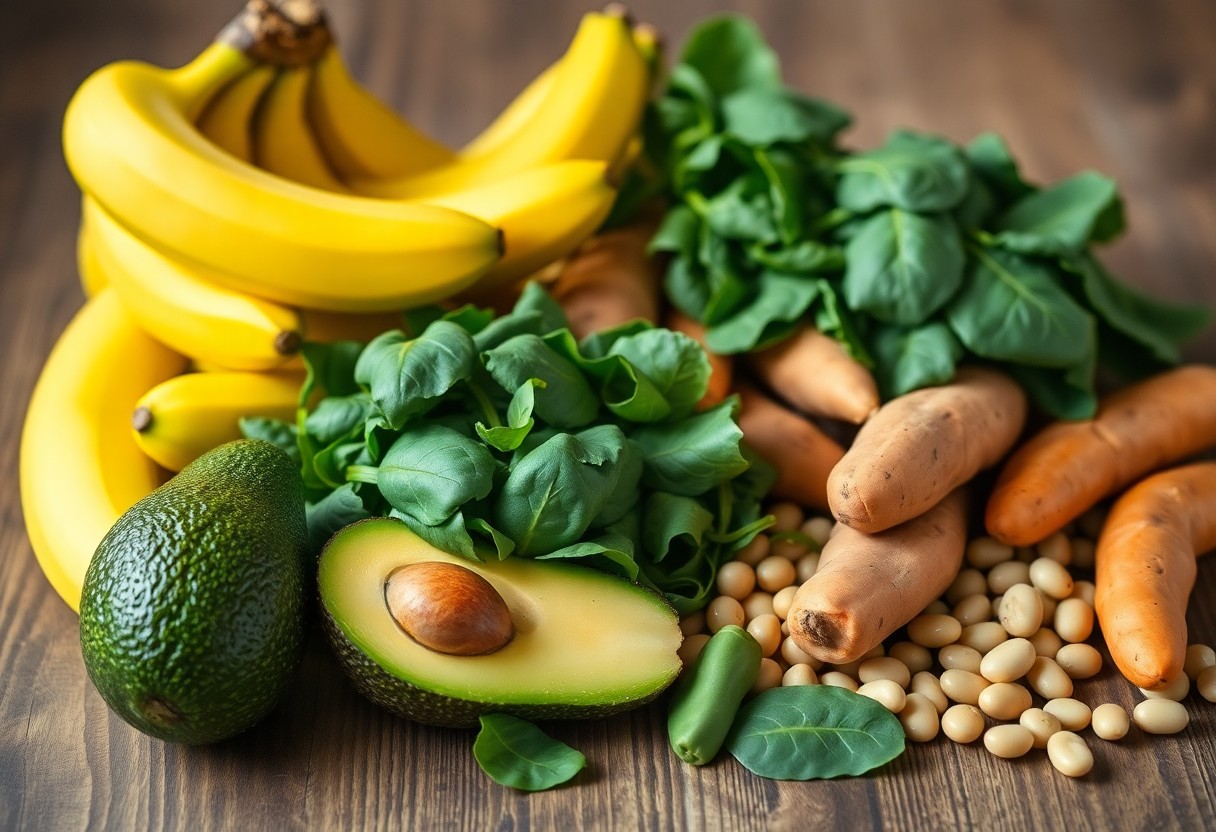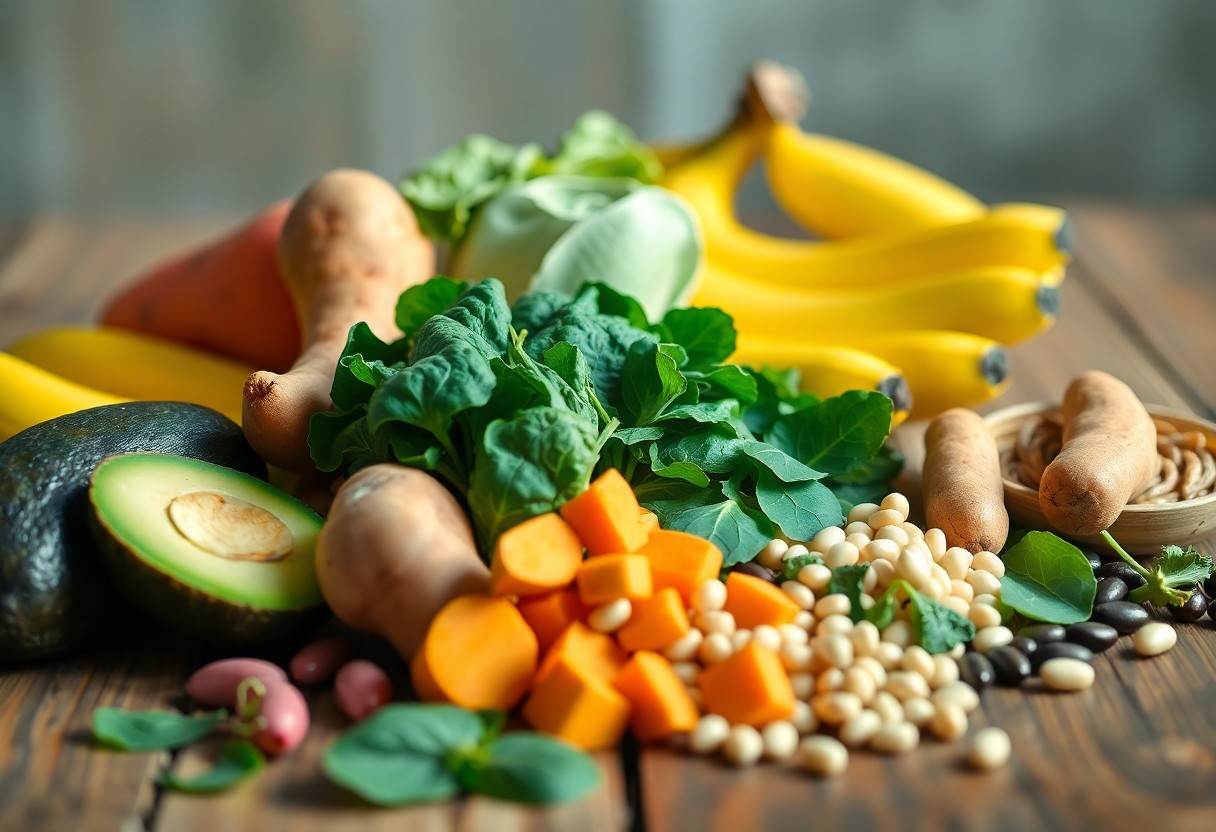Most people don’t realize the vital role potassium plays in maintaining your heart health. This important mineral helps regulate blood pressure, supports muscle function, and contributes to overall cardiovascular wellness. To help you enhance your diet, we’ve compiled a list of the top sources of potassium-rich foods. For more insights, check out Beyond Bananas: 16 Potassium-Rich Foods, ensuring you get the nutrients your heart needs to thrive.
Importance of Potassium for Heart Health
Before discussing the benefits, it’s crucial to understand the significance of potassium in your diet. This vital mineral is linked to regulating blood pressure and maintaining proper heart function. According to Potassium - The Nutrition Source - Harvard University, adequate potassium intake can significantly reduce the risk of heart disease, making it a priority in your daily nutrition.
Role of Potassium in Cardiovascular Function
With its ability to help manage blood pressure and fluid balance, potassium plays a key role in your cardiovascular system. It helps relax blood vessel walls, leading to improved circulation and reduced strain on your heart. By balancing sodium levels, potassium assists in maintaining a healthy blood pressure, vital for heart health.
Benefits of Adequate Potassium Intake
With sufficient potassium in your diet, you can experience numerous advantages for your heart health. This mineral supports proper electrical activity in the heart, helping to maintain a steady heartbeat. Additionally, high potassium intake is associated with a lowered risk of strokes and heart attacks, enhancing your overall cardiovascular well-being.
But achieving adequate potassium intake is not just about heart health; it can also improve muscle function, minimize cramps, and enhance bone density. By incorporating potassium-rich foods into your diet, you are making strides not only for your heart but also for your overall health and vitality. Prioritize foods like bananas, sweet potatoes, and spinach to ensure your potassium levels are optimal.
Top Sources of Potassium
One of the best ways to ensure you’re getting enough potassium is to include a variety of potassium-rich foods in your diet. Foods such as bananas, potatoes, and spinach are excellent choices to support your heart health. You may be wondering, can potassium-rich foods lower your blood pressure and promote heart function? Indeed, incorporating these foods can have a positive impact on your cardiovascular health.
Fruits High in Potassium
The most popular fruits high in potassium include bananas, oranges, cantaloupes, and apricots. These fruits not only provide crucial vitamins and minerals but also make for delicious, wholesome snacks that can easily be added to your meals.
Vegetables Rich in Potassium
For enhancing your potassium intake, you should focus on vegetables like sweet potatoes, spinach, and beet greens. These options can easily be incorporated into your daily meals, boosting your nutrient profile.
Understanding which vegetables are rich in potassium can help you make informed choices for your diet. Including various leafy greens and root vegetables ensures that you obtain a healthy dose of potassium, which is vital for maintaining overall cardiovascular health and regulating blood pressure. Enjoy these veggies steamed, roasted, or in salads for maximum benefit.

Other Potassium-Rich Foods
Unlike many people realize, there are numerous other potassium-rich foods beyond the commonly known fruits and vegetables. Incorporating a variety of these options into your diet can significantly contribute to your daily potassium intake and support your heart health. Some of these foods include legumes, pulses, nuts, and seeds, each packed with nutrients that provide benefits beyond potassium.
Legumes and Pulses
Against the common notion that meat is the primary protein source, legumes and pulses like lentils, beans, and peas are abundant in potassium and offer heart-healthy benefits. These versatile foods are not only rich in fiber but also help with maintaining blood pressure levels, making them ideal choices for a balanced diet.
Nuts and Seeds
For those looking to enhance their potassium levels, nuts and seeds serve as an excellent addition to your meals and snacks. Varieties such as almonds, walnuts, sunflower seeds, and pumpkin seeds can contribute valuable nutrients while providing a satisfying crunch.
Considering their nutrient density, incorporating nuts and seeds into your daily routine can boost your overall health. Packed with healthy fats, protein, and fiber, they not only offer a potassium-rich source but also contribute to heart health by helping to lower cholesterol levels. Try adding them to smoothies, salads, or simply enjoy them as a snack to gain their ultimate benefits.

Daily Potassium Requirements
Many health experts recommend that adults should aim for a daily potassium intake of around 2,500 to 3,000 mg. This imperative mineral helps maintain optimal heart health, fluid balance, and muscle function. By ensuring you meet your potassium requirements, you can significantly support your cardiovascular system and overall well-being.
Recommended Dietary Allowance
After years of research, the recommended dietary allowance (RDA) for potassium has been established to guide your intake. For adults, the RDA is set at approximately 4,700 mg per day. This amount is suggested to help alleviate the risk of hypertension and promote heart health, helping you feel your best every day.
Factors Influencing Potassium Needs
One key factor influencing your potassium needs is your age and sex, as these can significantly affect how much potassium your body requires. Other factors that may play a role include:
- Your level of physical activity
- Dietary habits
- Medical conditions, such as kidney disease
Thou should also consider how various aspects of your lifestyle can affect your body's potassium requirements.
Another important consideration is the use of medications, as certain drugs can either increase or decrease your potassium levels. Additional factors that may influence your potassium needs include:
- Loss of fluids due to sweating or dehydration
- Pregnancy or lactation
- Specific dietary restrictions that limit intake of potassium-rich foods
Thou may find that by understanding these influences, you can better manage your potassium intake for optimal health.
Tips for Incorporating Potassium-Rich Foods
Keep your meals vibrant and nutritious by integrating potassium-rich foods into your diet. Consider these tips:
- Start your day with a banana or avocado in your smoothie.
- Opt for leafy greens in your salads and sandwiches.
- Snack on dried fruits like apricots or raisins.
- Include sweet potatoes or squash as a side dish.
- Incorporate beans and lentils into soups and stews.
Perceiving these foods as staples can help enhance your overall heart health.
Meal Planning Strategies
About effective meal planning for potassium intake, you can create a weekly menu that highlights these nutrient-dense options. Prioritize including a variety of fruits, vegetables, legumes, and whole grains into your meals. Batch cooking can save time and ensures you always have healthy, potassium-rich foods prepared on hand. Aim for diverse flavors and textures to keep your meals enjoyable and satisfying.
Cooking Methods to Preserve Potassium
Around cooking methods, you can take specific steps to retain potassium levels in your food. Techniques like steaming, microwaving, and sautéing are excellent choices as they use less water and reduce potassium loss. Avoid methods that require prolonged boiling, as potassium can leach into the cooking water. Keeping the skins on potatoes and other vegetables can also enhance your potassium intake.
Understanding the right cooking methods is vital for maintaining the nutrient content in your meals. Steaming vegetables or using a microwave helps to preserve potassium effectively compared to boiling, where nutrients can dissipate into the water. Quick cooking techniques, such as stir-frying, can also lock in more of the nutrient value. Additionally, incorporating pre-cooked beans or lentils into your dishes can boost potassium availability without losing necessary nutrients during cooking.
Final Words
As a reminder, incorporating potassium-rich foods into your diet can significantly benefit your heart health. Foods like bananas, sweet potatoes, spinach, and avocados not only provide vital nutrients but also help manage blood pressure and support cardiovascular function. By making conscious choices to include these sources in your meals, you can promote a healthier heart and overall well-being. Empower yourself with the knowledge of these food options and take proactive steps towards a heart-friendly lifestyle.
FAQ
Q: What are some top potassium-rich foods to include in my diet for heart health?
A: Some excellent potassium-rich foods that can benefit heart health include bananas, sweet potatoes, spinach, avocados, beans, lentils, and oranges. These foods not only provide potassium but also offer other vital nutrients like fiber, vitamins, and antioxidants that contribute to overall cardiovascular wellness.
Q: How does potassium contribute to heart health?
A: Potassium plays an important role in maintaining fluid balance, which helps regulate blood pressure. Adequate potassium intake can help counteract the effects of sodium, reducing the risk of high blood pressure and heart disease. It also supports proper muscle function, including the heart muscle, ensuring it beats effectively.
Q: How much potassium should I aim for daily?
A: The recommended dietary allowance (RDA) for potassium is about 2,500 mg for adult women and 3,000 mg for adult men. However, individual needs may vary based on age, sex, physical activity level, and health conditions. It’s best to consult with a healthcare provider to determine the appropriate intake for your specific situation.
Q: Are there any risks associated with consuming too much potassium?
A: While potassium is vital for health, excessive intake can lead to hyperkalemia, a condition characterized by high potassium levels in the blood. This can cause irregular heartbeats and other serious health issues. People with kidney problems or those taking certain medications should be especially cautious about their potassium consumption and should consult a healthcare professional.
Q: Can I meet my potassium needs through supplements?
A: While potassium supplements are available, it's generally advisable to obtain potassium through a balanced diet rich in whole foods. Whole foods provide not only potassium but also other beneficial nutrients that work together for optimal health. If you're considering supplements, talk to a healthcare provider to assess your individual needs and potential risks.


0 Comments